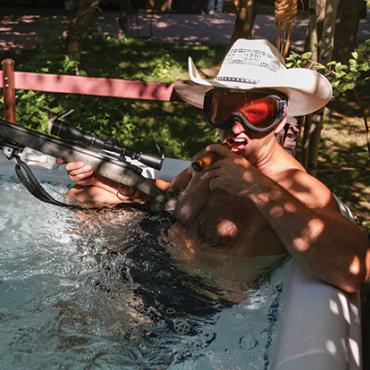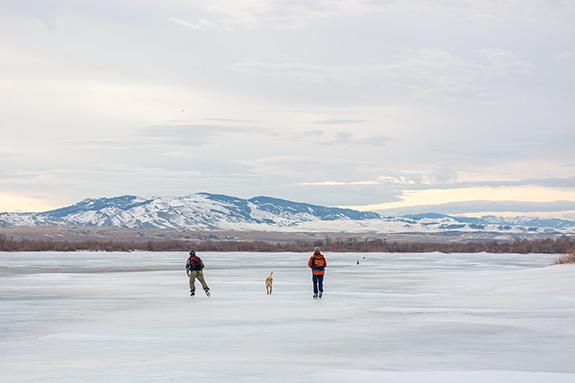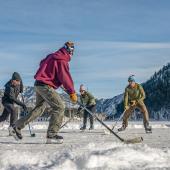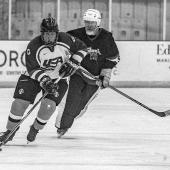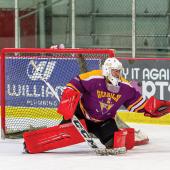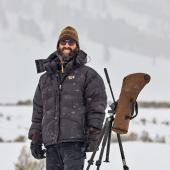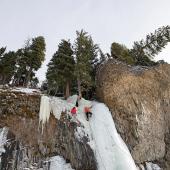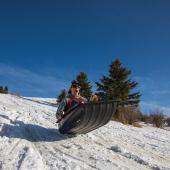Across the Ice
Traversing terra incognita on skates.
We all have them: places that call to us, from near or far, for reasons that defy easy explanation. What draws us toward yon mountain, beyond the tawny foothills? That land across the sea, about which we know nothing save a few photographs—why does it reappear in our minds, whispering its sweet summons, that siren song we can’t ignore or forget?
One such place, for me, is the overflow pond outside Townsend, on the southwest end of Canyon Ferry. Each time I pass, on the road to Helena or Great Falls, my head moves on its own. My eyes scan the broad surface, broken by tiny islands, then trace the long sweep of earth segregating it from the rest of the lake. What fish live there, I wonder, what manner of bird and beast roam these shallow waters before taking refuge in the abundant brush along the shore?
Winter confers new character to the pond. It becomes even calmer, quieter, more desolate and captivating: a desert of ice, precarious, perhaps impassable, the dike no longer a boundary but a bulwark, a moat turned inside out, isolating the area and locking out any would-be interlopers from the east. It bespoke a mythical borderland, a frontier beyond which lies the great unknown. The great adventure.
And so after an impulsive river-top romp on skates opened our eyes to a whole new world of winter opportunity, a friend and I headed north with our helmets and ice claws—spiked hand-grips for climbing out of a hole in the ice—as we’d surely take a tumble or two on the unstable surface. With a trusty four-legged friend in tow, we strapped on skates and set out across the ice.
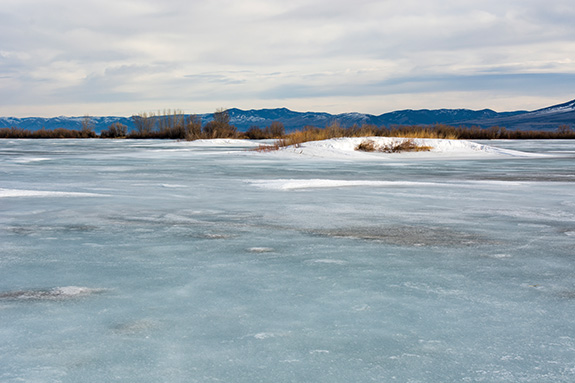
Our route was irregular. No landmarks influenced our direction; there lay before us only a sea of white. We moved at random, our path guided by the obstructions we faced—which were many. Paper-thin ice sheets, great heaves and pressure ridges, exposed earth and rock… this was off-road skating at its finest. Hidden holes abounded; grunts and groans filled the frigid air as we broke through and pitched forward—a desperate gut-wrench followed by an awkward, stumbling recovery. It was some of the most challenging skating we’d ever done.
But it was also some of the most entrancing. Left to her own devices, Mother Nature had made this place her palette. With the twin brushes of sun and wind she drew wild strokes across the ice: impressionistic patchworks of blue and white, vast translucent smears, and complex webs of mini-fissures, as if remnants of some silent explosion beneath the surface. Elsewhere, tiny air bubbles were locked in aquamarine ice, their struggle to gain the surface suspended till spring.
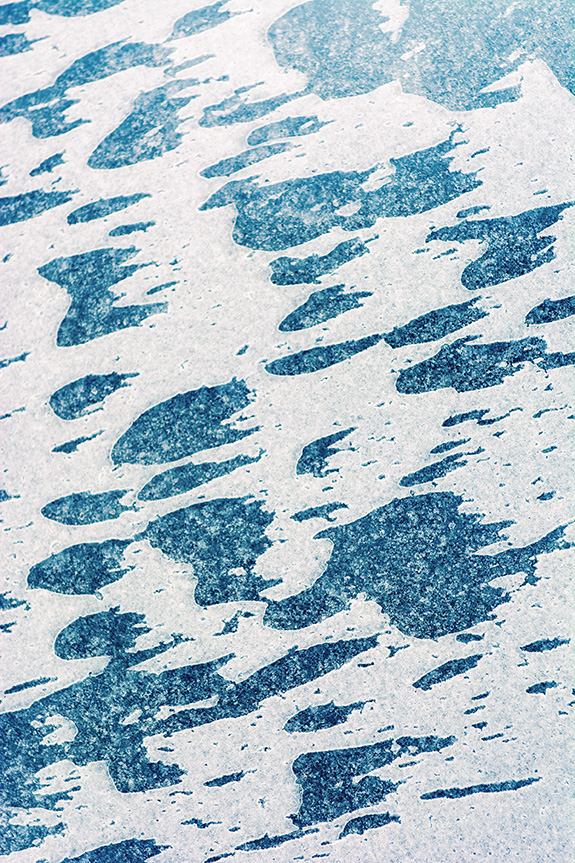
Around these eccentricities, though, smooth, solid expanses opened up, and we stretched our legs, making long, rhythmic arcs toward the dike. We veered away from each other for hundreds of yards, letting the ice carry us. Soon we felt comfortable in this strange environment. We gained our confidence and learned to read the ice. Before long we were leaping over obstacles instead of veering around them. The dog felt our excitement and got frisky, darting back and forth between us.
And it was then, as we carved and glided our way across the ice, the skeletons of trees and brush on all sides, that I understood. The pond was an enigma. A place out of time and space: an inland lagoon, a frozen marsh, a salt-flat set among towering mountains. It was different than everything around it. And yet, here it was. The pond represented the end of our knowledge—and, in exploring it, a new beginning.
Which may be what attracts us all to these places: a chance to see things anew. To re-experience the mystery of Montana, and the world. Amid familiar patterns, subtle differences speak to us: an unusual blend of color and form; a bizarre combination of terrain, tree cover, and light; an odd convergence of water and stone. And what’s important is not what we see, or why, but only that we go. Because now, having partaken, having learned, we can open our eyes and our minds—to the next place, the next adventure, the next foray into the wild unknown.

